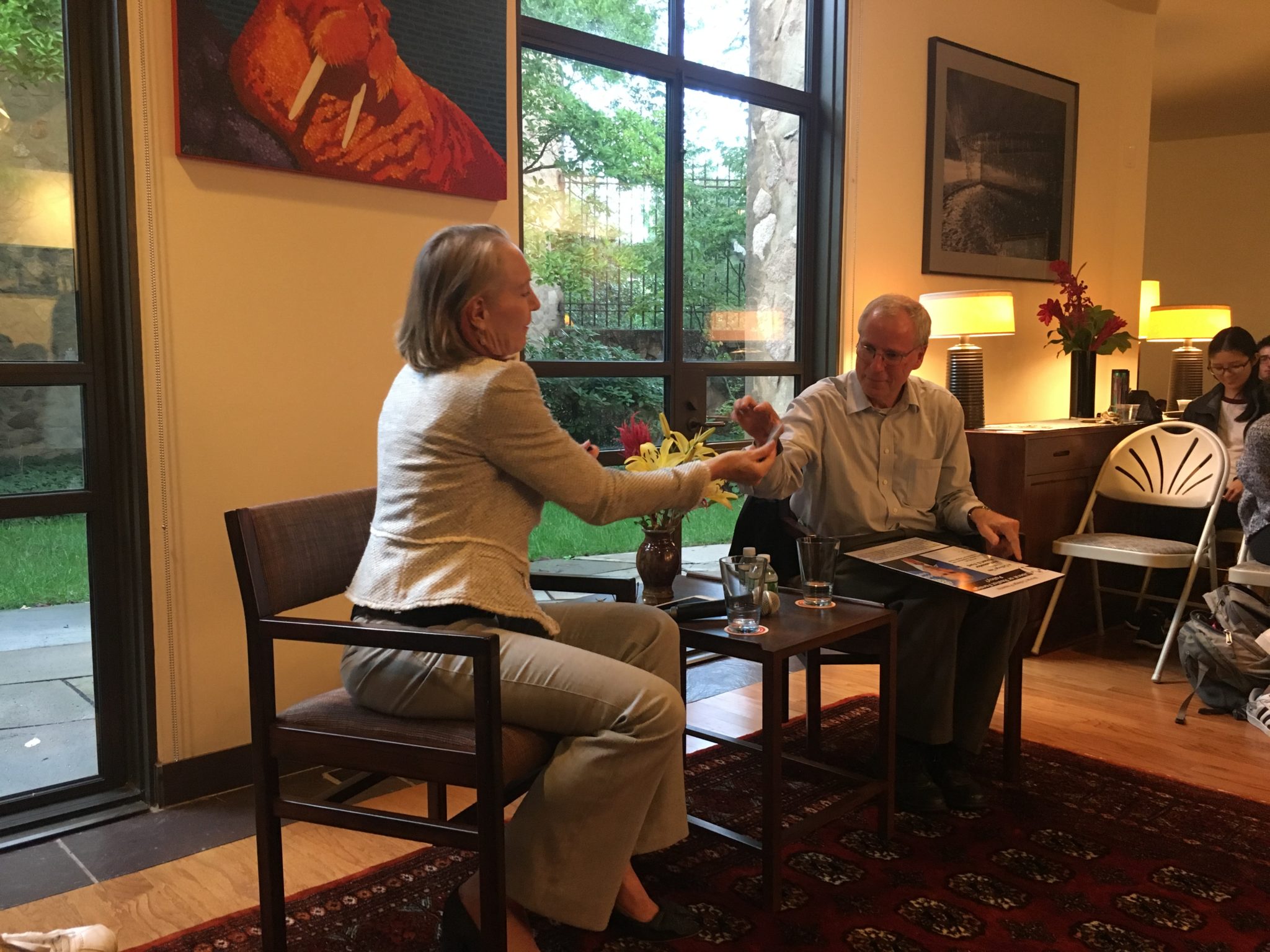
In Morse College’s first tea of the year, former Ambassador to Syria Robert Ford discussed an alternative to American hegemony — a “realist approach” to foreign policy, which would see a less-interventionist United States collaborate more with its allies and spend less on its military.
The event, which was held on Tuesday afternoon at the Morse head of college house, drew a crowd of over 30 students, professors and Morse fellows. During the tea, Ford described the realist approach to foreign policy, drawing from his three decades of experience stationed in North Africa and the Middle East. He spent the later half of the talk explaining his stance on American intervention in the Middle East.
“Should [the United States] stay number one and promote this liberal world order and all that goes with it?” Ford asked, rhetorically, at the start of his talk. “Or do we need to be a little more realistic about our own capabilities and step back, retrench and work with allies?”
Ford is the Kissinger Senior Fellow at Yale’s Jackson Institute of Global Affairs and teaches an undergraduate seminar called “Turning Points in American Foreign Policy.” He spent the first 30 years of his illustrious career stationed around Africa and the Middle East as part of the Peace Corps. He most notably served as the U.S. Ambassador to Algeria between 2006 and 2008 and as the Ambassador to Syria from 2010 to 2014, a period during which pro-democracy protests and uprisings roiled the Middle East. He is currently a senior fellow at the Middle East Institute in Washington, where he writes about developments in the Levant and North Africa.
In recognition of his diplomatic service, Ford received the Presidential Honor Award and the John F. Kennedy Profile in Courage Award in 2012, and the Distinguished Service Award, the State Department’s highest honor, in 2014.
After a brief introduction from Head of Morse College Catherine Panter-Brick, Ford kicked off the talk by describing what he called a “liberal” foreign policy point of view. The liberal approach, a stance which the United States government has historically adopted, is characterized by efforts to export liberalism abroad.
As an example, Ford pointed to the Afghanistan war, a conflict that has lasted over seventeen years. Contrary to optimistic statements coming out of the Pentagon, Ford said, an amelioration of the conflict is not in sight.
“We went into both [Iraq and Afghanistan] thinking that we could remake societies, that we could go out and build democracy and do nation building,” Ford said. “I was at the spearpoint of [the war in Iraq] for five years and saw some successes, but a lot of failures and a lot of wasted money.”
He contrasted liberal foreign policy to a new approach, “realism,” which has gained traction in academia but “not yet reached Washington.” Proponents of a “realist” point of view believe that instead of intervening to promote democracy, the United States should work in tandem with its allies to empower regional authorities and local residents who better understand their own needs.
Doing so would enable the United States to scale back on military spending and step back from the “mission impossible of nation building,” Ford said, whereby the U.S. tries to push ideals of western democracy onto countries that cannot or are not willing to adopt them.
Students at the event, including Abhishek Srinivas ’21, said they appreciated the opportunity to listen to Ford.
“Being in that room challenged my perspective on humanitarian intervention,” Srinivas said. “It was super cool to see a real diplomat talk about his experiences, especially in a complicated region.”
Still, some students said Ford could have offered clearer responses to certain questions.
“A prime focus of the talk was the Middle East, and it was interesting to see Ambassador Ford’s opinion on American intervention in the area,” Ayla Khan ’21 told the News. “Although a lot of people raised questions about the American motivation and priorities when it comes to intervening, Ambassador Ford wasn’t particularly clear on this point.”
Ford graduated from Johns Hopkins University in 1980 with a degree in International Studies.
Lorenzo Arvanitis | lorenzo.arvanitis@yale.edu







